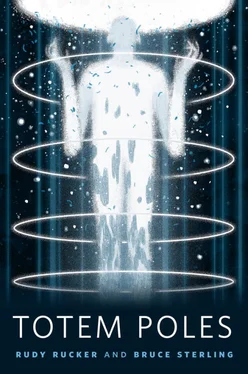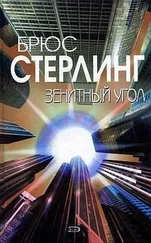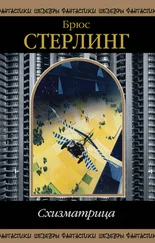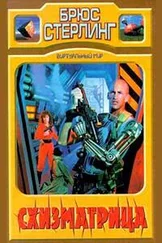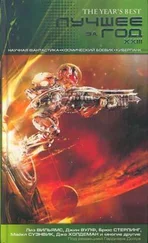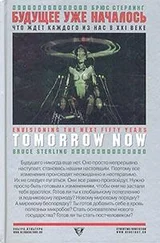Брюс Стерлинг - Totem Poles
Здесь есть возможность читать онлайн «Брюс Стерлинг - Totem Poles» весь текст электронной книги совершенно бесплатно (целиком полную версию без сокращений). В некоторых случаях можно слушать аудио, скачать через торрент в формате fb2 и присутствует краткое содержание. Город: New York, Год выпуска: 2016, ISBN: 2016, Издательство: Tor Books, Жанр: Фантастика и фэнтези, short_story, на английском языке. Описание произведения, (предисловие) а так же отзывы посетителей доступны на портале библиотеки ЛибКат.
- Название:Totem Poles
- Автор:
- Издательство:Tor Books
- Жанр:
- Год:2016
- Город:New York
- ISBN:978-0-765-38501-7
- Рейтинг книги:3 / 5. Голосов: 1
-
Избранное:Добавить в избранное
- Отзывы:
-
Ваша оценка:
- 60
- 1
- 2
- 3
- 4
- 5
Totem Poles: краткое содержание, описание и аннотация
Предлагаем к чтению аннотацию, описание, краткое содержание или предисловие (зависит от того, что написал сам автор книги «Totem Poles»). Если вы не нашли необходимую информацию о книге — напишите в комментариях, мы постараемся отыскать её.
At the Publisher’s request, this title is being sold without Digital Rights Management Software (DRM) applied.
Totem Poles — читать онлайн бесплатно полную книгу (весь текст) целиком
Ниже представлен текст книги, разбитый по страницам. Система сохранения места последней прочитанной страницы, позволяет с удобством читать онлайн бесплатно книгу «Totem Poles», без необходимости каждый раз заново искать на чём Вы остановились. Поставьте закладку, и сможете в любой момент перейти на страницу, на которой закончили чтение.
Интервал:
Закладка:
Rudy Rucker and Bruce Sterling
TOTEM POLES

Dirt Complaining and Dirt Harkening were a long-buried married couple.
“I haven’t minded being dead one bit,” said Dirt Complaining. “But now we’ve got space aliens nosing around. And they’re curious about totem poles? Why did you men even make those things?”
“We were great artists,” said Dirt Harkening.
“Fools conjuring up cosmic forces.”
“I miss potlatch,” said Dirt Harkening. “That’s what I’ve missed most, down here in the Earth’s dirt.”
“Potlatch again,” said Dirt Complaining. “Ha! All you big chiefs, pretending to be above all wealth, so spiritual, so potent! Whose robes and amulets were you burning and throwing into the sea? Women’s crafts, women’s treasures!”
“Easy come, easy go,” said Dirt Harkening. “With flying saucers in the sky, our whole Earth is in play. But come what may, dear wife—our squabbles don’t matter anymore.”
“The heirs of our dead flesh still walk the Earth, husband.”
“The living take no account of us. People have forgotten that sacred truth was captured in the mighty symbolism of our totem poles. Even though the saucers understand.”
“Your totem poles were vulgar,” said Dirt Complaining. “Big phallic brags !”
“We artists like that sort of thing. A totem pole that stands up good and stiff—very fine.”
“Let’s see how this ends,” said Dirt Complaining.
Ida lowered her combat binoculars. She had pale skin, a heart-shaped face and a bob of lustrous dark hair. “It’s a shame that nobody sees the point of our struggle. What if we’re wrong?”
Kalinin adjusted his brimless fur Cossack hat. He was a bony, waxy-skinned warrior with high cheekbones and a great beak of a nose. “You and I will be heroes,” he said, looking tenderly upon Ida. “Once we learn how to kill this race of flying saucers.”
“But the saucers are saving the very Earth that mankind destroyed!”
“If you wash an apple before eating it, do you do that for the apple’s good?”
Heaped with garbage, a chain of filthy diesel trucks lumbered toward the vast scar of the coal mine, here in the Donbass region of the Ukraine. One after another, with distant groans and screeches, the great trucks dumped their trash. It was high noon, with a glaring sun.
The alien creatures had three primary forms—one for the air, one for the sea, and one fearsome form that infested the Earth itself.
The air invaders resembled classic flying saucers. They haunted Earth’s skylines, absorbing pollutants. In their seagoing form, the saucers took on shapes like whales. They devoured poison gyres of floating plastic with their ivory teeth, and filtered toxins with their dark baleen. And the subterranean saucers were colossal, rubbery, saucer worms. They infested mankind’s mines and landfills, erasing every scrap of poison they found.
Thanks to the aliens, the withered fields and rain forests, stricken by every form of human rapacity, were blooming again. Happy dolphins and gallant tuna swam the open seas. Wild pigs roamed the taiga like the wind. The planet’s molten poles were freezing again as the rising seas receded.
The very largest of the chthonic saucer worms was here in a Donbass coal mine. Kalinin’s sworn goal in life was to kill this worm. For weeks, militarized Russian diesel trucks had been dumping nuclear waste into the mine, filling it with choice bait for the saucers. Lured by this bonanza of filth, an armada of the flying saucers had burrowed into the shaft and had merged their bodies to form a vast and lumpy worm.
Sheltered by a rampart of wet sandbags, Kalanin and Ida watched one of the great, silvery saucers fly by overhead. Kalinin’s ragtag paramilitary warriors set up a rousing antiaircraft fire from their muddy ambush holes. But they weren’t firing bullets.
The living saucers, it seemed, had a weakness. They carried within them some prime directive about intelligent life, some ethic that manifested itself as a tenderness towards human beings. The saucers were unwilling or even unable to harm people. They had an especial loathing for dead people. Therefore Kalinin’s paramilitary troops fired human body-parts at any saucer within range—making the innocent blue sky above the radioactive coal-mine into an aerial graveyard of human carrion.
The saucer flexed, ducked, and dodged its way through the sprays of gore. The fierce militia-men concentrated their bloody fire the more. The saucer’s capacities, although great, were not infinite. Under the harassment of flying carnage, the saucer’s smooth seamless edges grew rough. The alien invader slowed, faltered, and broke into a hailstorm of twitching mirror-scraps. These were saucer grubs, actually quite good to eat.
The paramilitary troops howled with glee, and fired off celebratory blasts from their small arms. Their hot bullets would fall to earth somewhere, often killing civilians. No matter. Graveyards were a useful source for the body-parts. Flying saucers might spurn killing people, but no cosmic rule decreed that the Russians couldn’t kill themselves.
“Our best warriors are our dead,” remarked Ida, shaking her head.
“Only the dead stay true,” said Kalinin. His corps of armed volunteers was dwindling day by day. They shared Ida’s sense that the saucers were good. They feared the battle was unwinnable. And the local Ukrainian peasants were filling the warriors with wild tales. Supposedly a salamander-shaped saucer-being had resurrected a farm wife from her grave. The villagers were calling the old woman a saint.
“I do wonder why the saucers are so kind to us,” said Ida. “We’ve done nothing to deserve redemption.”
“They’re saving us up,” said Kalanin. “For a last supper.”
Silently Ida studied Kalanin, her expression a mixture of cunning and tenderness. A former painter turned Kremlin intriguer, Ida was Kalinin’s state-support liaison in his desperate, unauthorized war. She brought Kalinin black money, grim volunteers, experimental weapons, and deniable orders from the Kremlin.
Kalinin was a veteran of the Russian nuclear-missile corps. During his military career, he’d been at ease with the idea of human beings destroying the Earth. And he felt an instinctive hatred for the flying saucers and their campaign to heal the world. It was a horror to see beings who were immune to human malice.
When the saucers first invaded, Kalinin had been commanding a nuclear launch center. His hydrogen bombs had failed to impress the space invaders. The saucers merely shimmered and swayed through the thermonuclear shockwaves—insolent as striptease dancers. Russian military lasers did nothing to faze them. Particle beams, the same. Meanwhile the other nations were making peace with the aliens.
The Kremlin’s Higher Circles had encouraged Kalanin to resign from the Russian army, and to strike out on his own. And now Ida was the only ally he trusted.
A talented portraitist, Ida had at one time enjoyed the intimate patronage of the Russian Minister of the Environment. But then the flying saucers had cruelly dissolved her oligarch’s pipelines and nuclear plants. The Minister had shot himself. Casting about for a new role, Ida had found her place as Kalinin’s liaison. But now she was ready to move on, and Kalanin knew it. She had a stash of jewelry to help her along. But what about Kalanin?
The nuclear-waste trucks retreated to fetch more garbage. The harsh sun beat upon the rutted earth.
“Let’s eat,” said Kalanin, and produced a loaf of tainted Chernobyl bread. He cut off a slice with his ever-ready bayonet.
Читать дальшеИнтервал:
Закладка:
Похожие книги на «Totem Poles»
Представляем Вашему вниманию похожие книги на «Totem Poles» списком для выбора. Мы отобрали схожую по названию и смыслу литературу в надежде предоставить читателям больше вариантов отыскать новые, интересные, ещё непрочитанные произведения.
Обсуждение, отзывы о книге «Totem Poles» и просто собственные мнения читателей. Оставьте ваши комментарии, напишите, что Вы думаете о произведении, его смысле или главных героях. Укажите что конкретно понравилось, а что нет, и почему Вы так считаете.
